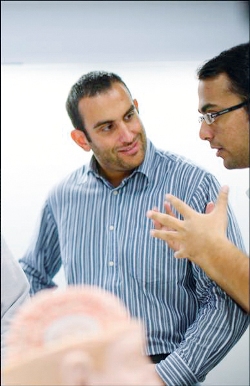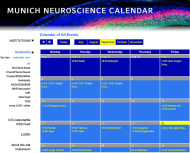Curricular elements and additional training - Scientific training program
 The scientific training program is divided into sections covering hard skills (general education, individual-based research training), conferences and international networking, and transferable skills (or soft skills) courses. A total of 30 ECTS must be earned through courses and activities, which include theoretical courses, specialized method training, workshops, retreat and conference attendance, as well as soft skills workshops. The content of the scientific training program is to be determined by the student and their thesis advising committee.
The scientific training program is divided into sections covering hard skills (general education, individual-based research training), conferences and international networking, and transferable skills (or soft skills) courses. A total of 30 ECTS must be earned through courses and activities, which include theoretical courses, specialized method training, workshops, retreat and conference attendance, as well as soft skills workshops. The content of the scientific training program is to be determined by the student and their thesis advising committee.
General education: Courses, seminar series, workshops, and lectures offers to broaden a neurobiological knowledge base and introduce participants to various research areas of the GSN faculty. Students must also participate in teaching and training activities.
Individual training: Research training is adapted to meet the specific educational needs of each young researcher, and offers theoretical and practical training as well as supervision related to the individual's PhD project.
International networking: Each doctoral student is encouraged to plan, conduct and report on an international internship abroad, lasting one week to three months. Possible collaborating laboratories are identified by the student themselves. Furthermore each doctoral student is required to attend a number of international conferences and syposiums.
Soft skills training: Young scientists need more than theoretical knowledge and methods skills. The GSN wants you to go beyond "learning by doing" when it comes to teaching, grant writing, or any one of the numerous requirements of a modern researcher. Our goal is to prepare students for leadership responsibilities and the challenges of an academic career. Additional soft skills courses such as oral presentation skills, scientific writing, management & leadership and ethical responsibility complete a well-rounded education.
For more information, please check the PhD guidelines.





